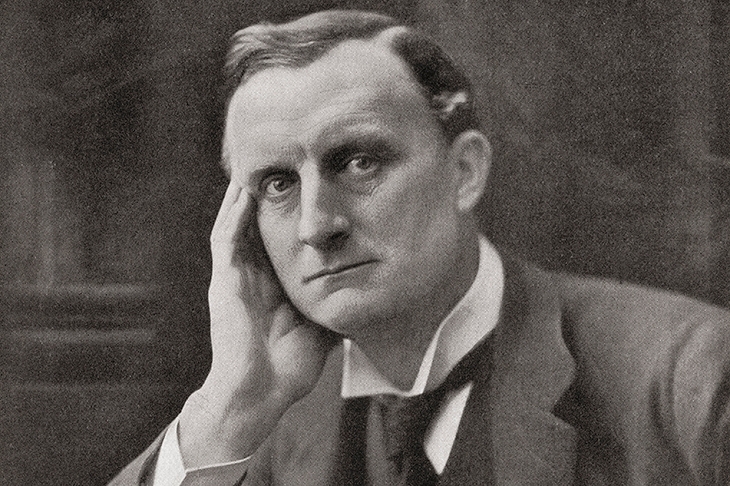This meaty but easily digested biography pivots around the events either side of that fateful evening of 4 August 1914 when Britain’s ultimatum to Germany over Belgium ran out and Sir Edward Grey memorably remarked that the lamps were going out over Europe.
As foreign secretary for almost a decade before that, Grey had deftly orchestrated a web of alliances designed to keep the peace in Europe, and Britain the dominant global power. But war and its attendant carnage unravelled his life’s work, leaving him a nervous wreck. He hung on in office until 1916 when the new prime minister David Lloyd George unceremoniously swept him out.
Lloyd George later led the attack on him as a ‘calamitous foreign secretary’, so aloof and obsessed with the ‘concert of Europe’ that he neglected Liberal values in an rapacious imperialist age, and committed grave errors, such as failing to deter Russia from mobilising to support Serbia.
War and its attendant carnage unravelled Grey’s life work and left him a nervous wreck
You won’t find such criticism here. T.G. Otte is an admirer of Grey’s steady hand and application. As a diplomatic historian he revels in carefully drafted cables and personal contacts between Chancelleries. (The pre-war German and Russian envoys to Britain were first cousins, as of course were the hereditary rulers of all three countries.)
Similarly, there’s none of the determinism found in A.J.P. Taylor’s cheeky suggestion that railways accelerated the hostilities. Otte is a lucid champion of the human factor in the steady development of events. The main railway on offer is the North Eastern Railway (NER), of which Grey was chairman. Its earlier incarnation, the Newcastle and Berwick Railway, ran its line through land at Fallodon, his ancestral home in Northumberland, after his grandfather granted permission, as long as the company opened a ‘halt’ there, so he could get to London for government business.
That was the privileged background Grey sprang from. Otte neatly delineates the local country-house politics, where Greys sided with the Liberal Trevelyans against the Tory Ridleys and Percys, with the Whig Lambtons somewhere in between, all wary of the political ramifications of Tyneside industry.
Following a lacklustre apprenticeship at Winchester and Balliol (where he took a third class degree in jurisprudence), Grey made his mark at Westminster from 1892 as parliamentary undersecretary of state in the Foreign Office, specialising initially in commercial treaties. He quickly gained greater prominence, issuing the ‘Grey Declaration’, warning France against crossing Britain in the Upper Nile.
After a Conservative interregnum, which included the Boer War, the Liberals regained office in 1905 under Campbell-Bannerman. Grey was given licence to respond, as foreign secretary, to a dangerous world where emboldened rivals sensed that Britain wasn’t quite the force it once was.
Having demonstrated his imperialist credentials over South Africa, Grey confirmed he was no pushover, as he defused issues such as the Franco-German stand-off over Agadir in 1911. With his ‘studied vagueness’ or (another of Otte’s precise phrases) ‘constructive ambiguity’, he balanced Austro-Hungarian, Russian and Ottoman demands in a succession of flare-ups in the Balkans. Maintenance of the Raj remained central to his strategy, but he operated to a worldwide brief as he also guarded against American penetration of the Caribbean, and Japanese of China.
In leisurely Edwardian style, Otte explains how Grey survived through a mixture of conviction and ability. In foreign affairs he was clearly to the right of his party, retaining widespread confidence because he championed Britain’s interests and refused to compromise on her naval strength. But he was also a committed Liberal, believing in votes for women, Home Rule and universal education — a position, Otte argues, that was reinforced by the Nonconformist presence in his Berwick constituency.
When war came, Grey berated himself for failing to keep the peace. As a friend noted, he was ‘never intended for the service of Mars’. So he left the war office to its bellicose ways and focused on matters such as the economic boycott of Germany and maintaining good relations with America under its new, unpredictable president Woodrow Wilson.
After stepping down in 1916, he accepted a viscountcy. Although briefly Liberal leader in the Lords, he spurned overtures to participate in a post-war Centre party. His first wife Dorothy having died in an accident in 1906, he married Pamela Glenconner, one of three striking Wyndham sisters painted by Sargent. Otte resolutely abjures gossip, occasionally voiced elsewhere, about affairs and even illegitimate children.
Though almost blind, Grey was now only happy when indulging his passions for bird-watching, fly-fishing and nature, about which he wrote eloquently. Old concerns about collective international security remained clear from his support (verging on pacifist) for the League of Nations. Rather touchingly, his last parliamentary speech shortly before his death in 1933 tackled the then unfashionable subject of the threat of oil pollution to sea birds.






Comments